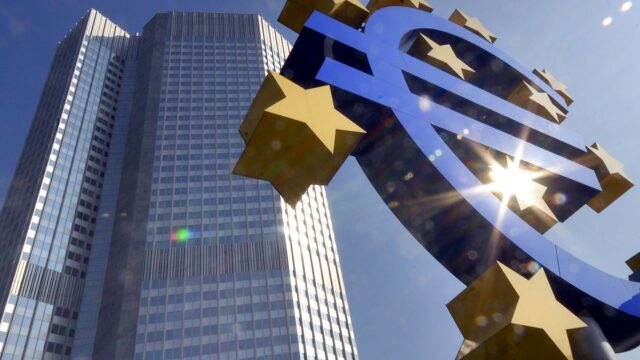Eurozone inflation rose to 2.6% in July, beating expectations and raising doubts about possible ECB interest rate cuts in September. Energy prices contributed significantly to the rise.
Inflation in the eurozone rose again in Julydefying economists’ expectations and raising some questions about the feasibility of a rapid reduction in interest rates by the European Central Bank.
The harmonized eurozone consumer price index increased 2.6% year-on-year in July, slightly above the 2.5% of the previous month, according to preliminary estimates from ‘Eurostat’ published on Tuesday. In particular, July annual inflation rate exceeded forecasts which pointed to a drop to 2.4%.
Energy costs were a major driver, with a monthly price rise of 1.3%, a sharp increase from 0.2% in June. Non-energy industrial goods too recorded a faster increase0.8% compared to 0.7% in June.
Services registered the highest annual rate in Julywith 4.0%, compared to 4.1% in June, followed by food, alcohol and tobacco, with 2.3%, compared to 2.4% in June. Excluding food and energy, core inflation remained stable at 2.9% year-on-year in July, exceeding market expectations of a decline to 2.8%.
Inflation rises in Germany, price pressure slows in Spain and Portugal
Among the members of the eurozone, Belgium continued to record the highest year-on-year inflation rate in Julyat 5.6%, the highest since January 2023. However, on a monthly basis, inflation in Belgium slowed by 0.6%, reversing a 0.5% rise in June. In Germany, harmonized consumer prices increased by 2.6% compared to July 2023, which represents a slight increase compared to the previous rate of 2.5%.
On a monthly basis, inflation in Germany accelerated by 0.5%, compared to an increase of 0.2% in June. In the Netherlands, inflation rose from 3.5% to 3.6%, reaching the highest level since July 2023.
On the contrary, consumer prices fell significantly in both Spain and Portugal. The harmonized annual inflation rate from Spain fell from 3.6% to 2.9%, while that of Portugal fell from 3.1% to 2.7%.
Both countries recorded the largest monthly declines, with falls of 0.7% in Spain and 0.8% in Portugal. France only recorded a slight increase in annual inflation, which went from 2.5% to 2.6%.
Will the ECB cut interest rates in September?
The July inflation report meant a setback in eurozone disinflation efforts, as the rebound surprised economists, who had expected further easing. Markets currently anticipate a 90% probability that The European Central Bank cuts interest rates at its meeting on September 14.
However, the latest inflation data could make the situation reconsider, especially the more hawkish members of the ECB in Frankfurt.
Earlier this month, the ECB’s monetary policy statement reiterated that “does not commit in advance to a specific type pathPresident Christine Lagarde insisted on this during her press conference, stating that the decisions will still rely on data and will be taken meeting by meeting.
“The figures are more promising than the forecasts, but have not shaken the ECB’s rate expectations. I’m still waiting for one second rate cut in September. “A fluctuating inflation figure around current levels is exactly what the ECB has been basing its projections on, so there isn’t much to learn from small amounts of volatility in the headline number,” said Kyle Chapman, market analyst. Ballinger Group Currency Exchange.
Market reactions: Euro remains stable, European stocks cut gains
Las market reactions were moderate shortly after the release of July inflation data. The euro remained stable between 1.0820 and 1.0830 against the dollar, pending the meeting of the Federal Open Market Committee. The euro fell 1.2% against the Japanese yenas the Bank of Japan raised interest rates and reduced its bond purchasing program.
European sovereign debt yields remained generally unchangedwith the yield of the German bund at 2.33%.
Stocks slightly trimmed session gains. The Euro STOXX 50, which opened on Wednesday with a rise of 1.2%, rose 0.8% at 11:30 a.m. ASML Holding was the most bullish stock, up more than 5%, followed by Danone and Airbus, which rose 3.8% and 3.6%, respectively. The main laggard was Banco Bilbao Vizcaya Argentaria, despite presenting profits and income higher than expected in the last quarter.
The German DAX rose 0.4%, while the French CAC 40 fared better, up 1.3%. The Spanish IBEX 35 fell 1.3%, while the Italian FTSE Mib rose 0.2%.







